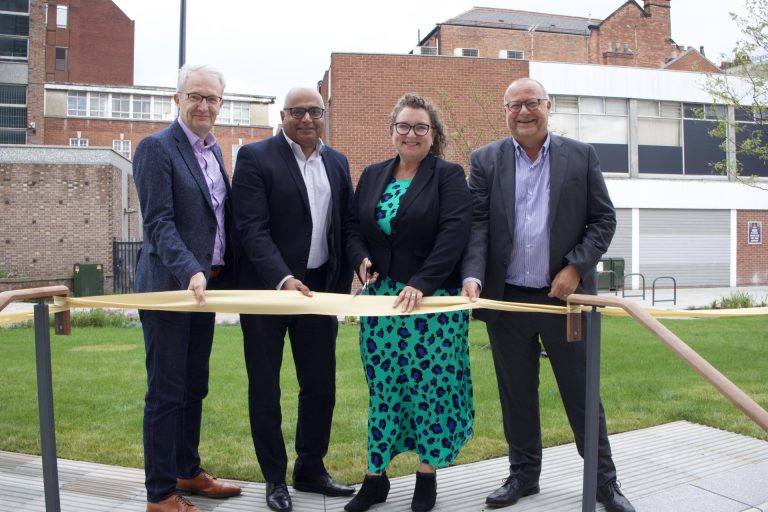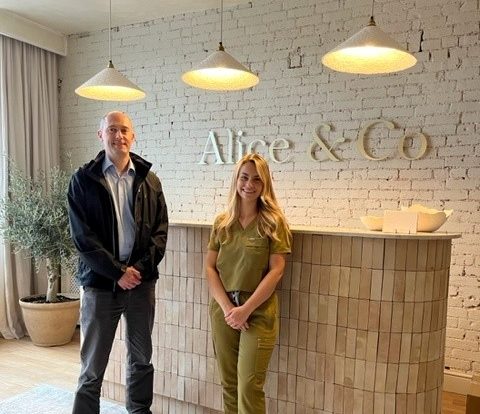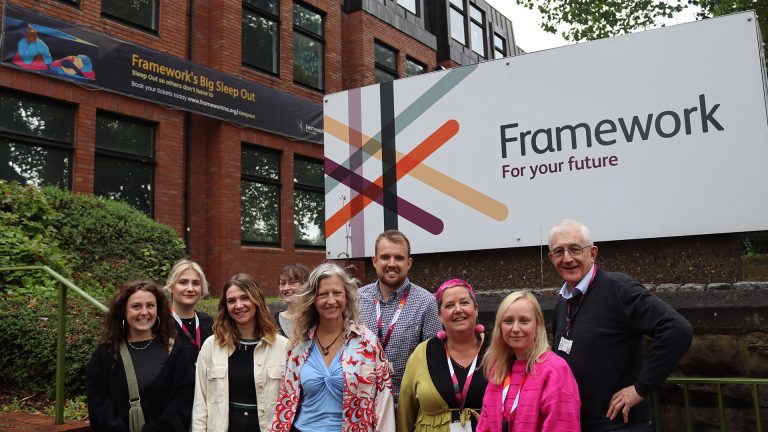Lincolnshire gets £2m to launch new raft of skills bootcamps
Newark and Sherwood businesses invited to learn more about support to become environmentally sustainable
Grant Thornton UK LLP makes three senior appointments in restructuring and insolvency practice
Grant Thornton UK LLP has made three senior appointments in its restructuring and insolvency practice.
In the Central & Midlands region, Jon Roden is being promoted to partner. Jon is a licensed insolvency practitioner and has built a trusted reputation in the local market. He will also lead work nationally with the asset-based lending community.
Also based in the region, restructuring director Rob Parker will become the firm’s UK-wide restructuring lead for construction, where he has recently led work on NMCN plc, Roadbridge UK Ltd and Buckingham Group Contracting Ltd.
Meanwhile, Philip Stephenson is appointed as head of restructuring in the North West. With more than 25 years’ experience in restructuring and insolvency, Philip is currently a partner in the firm’s London restructuring team, but previously worked in Manchester and has strong contacts there and across Cheshire, Liverpool City Region, Lancashire, and Cumbria.
Helen Dale, head of restructuring for Central & Midlands, said: “The promotion of Jon to partner, and the appointment of Jon and Rob to national roles, reflects their respected presence in both local and national markets and I’m delighted to be working with them in their new roles.”
Phase one of Derby’s Becketwell regeneration scheme complete
Burton clinic expands into new premises
Further success at Sherwood Business Park
Comms agency pledges support to Framework in its mission to end homelessness
Nottingham-based PR agency Redbrick Communications is stepping up to donate consultancy expertise to Framework, the charity working tirelessly to change lives for the better and tackle homelessness across the East Midlands.
Redbrick Communications will be helping Framework – which delivers housing, health, employment, support and care services to people with a diverse range of needs – with strategic advice and media outreach to raise awareness of its work on a local, regional and national level.
The announcement of the partnership coincides with reports indicating numbers in temporary accommodation in England have hit a record high, and as the charity looks ahead to its flagship fundraising event Framework’s Big Sleep Out (7 October 2023), as well as launching its Winter Appeal on World Homeless Day (10 October 2023).
Claire Eden, head of fundraising and communications at Framework, says: “As a small team, we are incredibly grateful to Redbrick for donating their time and expertise. We look forward to working closely with them to help us on our mission to end homelessness and tackle disadvantage. With the cost of living and housing crisis once again hitting the headlines, it has become ever more important for us to continue to support people and our communities.”
Work has already seen Redbrick Communications help publicise activities including the support of young fundraisers; a press call with corporate partner Tesco offering welcome packs and home comforts for first-time residents of Framework accommodation, and another Redbrick client DHP Family being honoured in the naming of new accommodation for long-term rough sleepers, thanks to the fundraising efforts of the charity music festival Beat The Streets.
Next up is Framework’s Big Sleep Out, the charity’s flagship fundraising event which aims to raise vital funds to get rough sleepers off the streets. As well as getting the word out to encourage businesses and individuals to sign up, a team from Redbrick will be spending the night in sleeping bags at Nottingham Racecourse on Saturday 7 October.
Liz Bee, account director at Redbrick Communications, says: “No one can have failed to see the growing number of people sleeping on the streets. Having seen firsthand how Framework is changing lives devastated by homelessness and giving people a chance of a better future, we knew we wanted to try and help make a difference. We’re excited to be working with the comms team to help shine a light on the issues and the support needed to provide long-term sustainable solutions.”
In addition to offering PR support to Framework, the agency will also lend its expertise through social media marketing and crisis communications services, as well as general consultancy advice.
361,000 sq ft Nottingham logistics scheme on track for December completion
The construction industry’s growth in 2023
The winners of the East Midlands Bricks Awards 2023 to be revealed next week
Tickets can be booked here.
The event, which will begin at 4:30pm and continue until 7:30pm, will also feature Mike Denby, Director of Inward Investment and Place Marketing at Leicester City Council, as keynote speaker. Complementary drinks and canapés will be served on arrival. Dress code is standard business dress.Shortlist for the East Midlands Bricks Awards 2023
Most Active Estate Agent – sponsored by OMS
BB&J Commercial
Mather Jamie
FHP Commercial Development of the Year – sponsored by MKMHBD – Power Park, Nottingham
Henry Brothers Construction – SportPark Pavilion 4, Loughborough
Bolsterstone Group Plc, Chesterfield Borough Council – One Waterside Place, Chesterfield Responsible Business of the Year – sponsored by Press for Attention PR Cawarden G F Tomlinson Aspbury Planning Limited Residential Development of the Year – sponsored by Sterling Commercial FinancePhoenix Brickwork UK Ltd – St Marks student accommodation, Lincoln
Elms Developments – Elms Phase Two Ltd
St James Securities, Grainger – The Condor, Derby
Deal of the Year – sponsored by Mather JamieRushton Hickman Limited – Branston Locks deal
Bassi Group Nottingham Ltd – Job saving Pizza Hut takeover
Rigby & Co – Aida Factory deal
Developer of the Year – sponsored by WardChevin Homes
Clowes Developments
Brackley Property Developments
Architects of the Year – sponsored by Blueprint InteriorsIMA Architects
Matthew Montague Architects
Influence Landscape Planning and Design
Excellence in Design – sponsored by CawardenChevin Homes – Amber Farm
Marchini Curran Associates – Phoenix cinema and art centre
Trident Construction Services – Lark Hill Retirement Village refurbishment
Sustainable Development of the Year – sponsored by Viridis Building Services LtdHBD – Power Park, Nottingham
Henry Brothers Construction – SportPark Pavilion 4, Loughborough
Elms Developments – Elms Phase Two ltd
Contractor of the Year – sponsored by RammSanderson CawardenEE Smith Contracts
Bowmer + Kirkland
The Overall Winner, sponsored by Streets Chartered Accountants, will also be announced at the ceremony, who will be awarded a year of marketing/publicity worth £20,000.










 To be held at:
To be held at:













